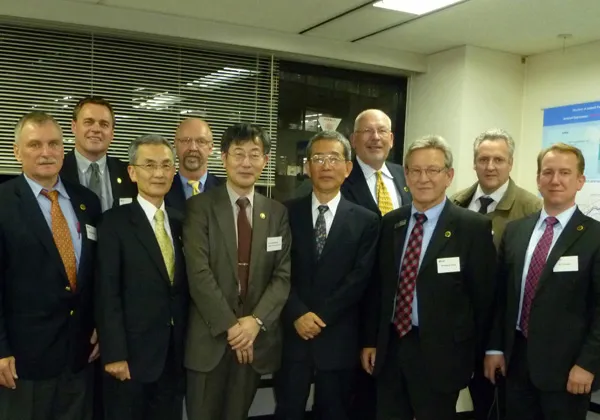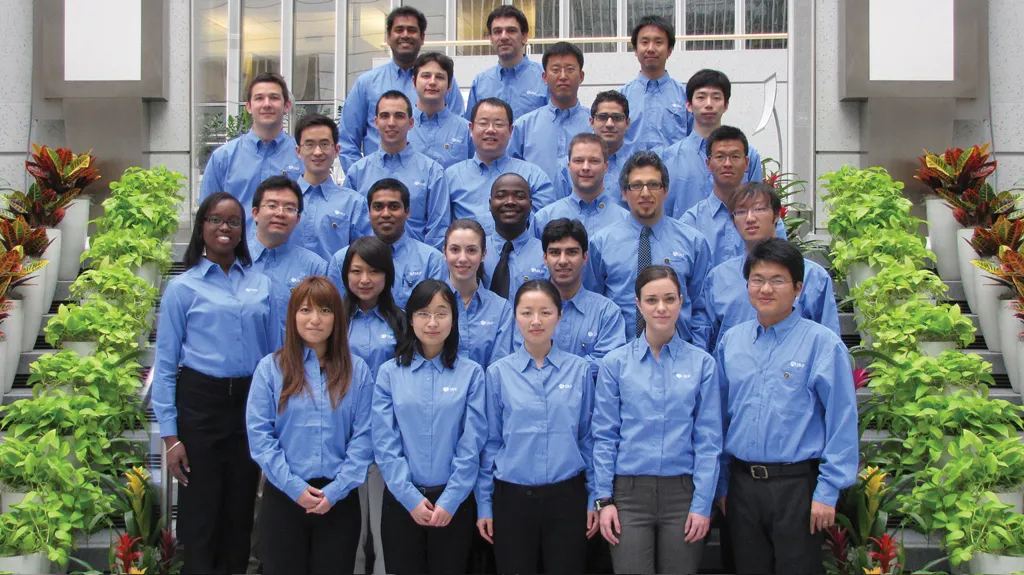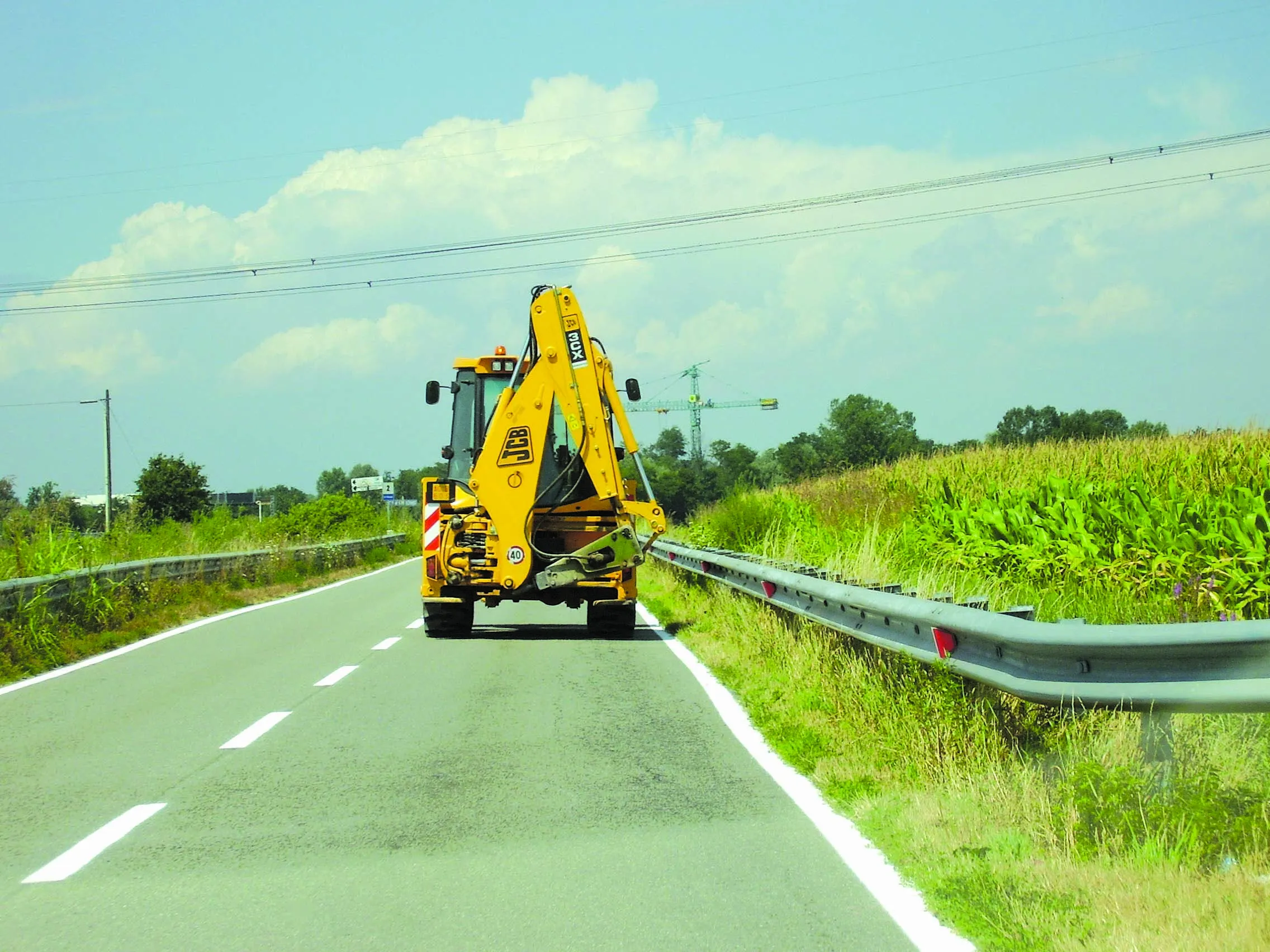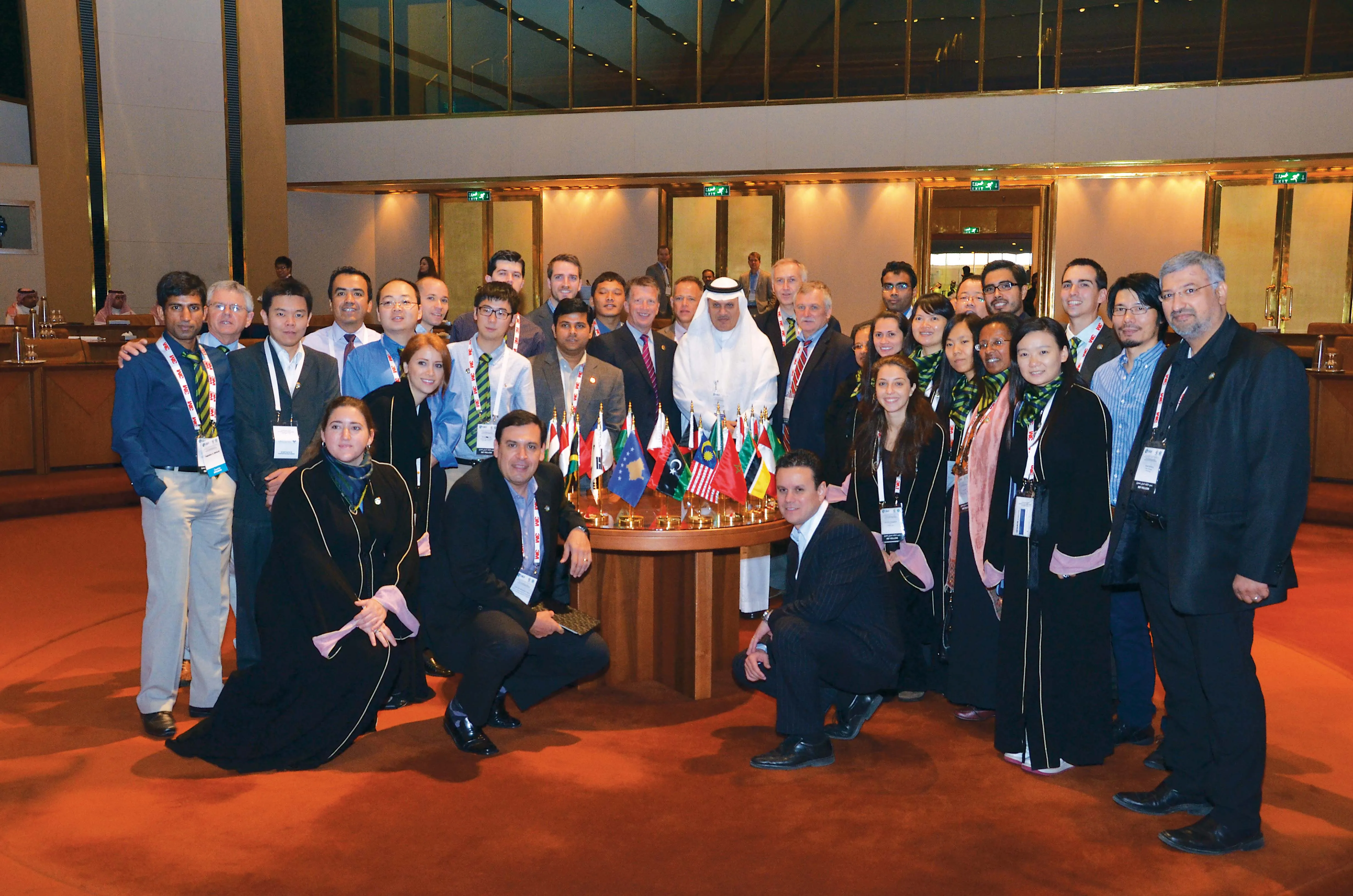For the past two decades, road safety advocates have faced an uphill battle of convincing governments of the very real epidemic of road fatalities and to invest resources to combat the carnage. And after several years of awareness campaigns, most, if not all, public road officials now agree that the world's roads must be safer.
February 8, 2012
Read time: 4 mins

For the past two decades, road safety advocates have faced an uphill battle of convincing governments of the very real epidemic of road fatalities and to invest resources to combat the carnage. And after several years of awareness campaigns, most, if not all, public road officials now agree that the world's roads must be safer.
But the question of how to make the roads safer continues to challenge road professionals all over the world.
Since 1994,2462 IRF has been providing expert road safety training to help road authorities implement life-saving measures. IRF's training workshops and seminars utilise open platforms to educate road authorities, consultants, contractors, design engineers and educators on the state-of-the-art technologies and best practices that are being used around the world to make the roads safer.
"IRF gathers the best solutions from around the world," said Brian Harris, chairman of IRF-Washington. "And with IRF's expertise, we are able to introduce low-cost engineering measures which save lives."
The IRF recently conducted its Roadside Safety and Work Zone Safety Applications training workshops in Japan and Korea, which are a part of its overall Safer Roads by Design(tm) training series.
"These workshops were made possible by the commitment, support and hospitality of IRF's host organisations, the2463 Japan Road Association (JRA) and the Korea Expressway Corporation (KEC)," said Sankey. "Moriyasu Furuki of the JRA (IRF Fellow 1973) and Dr. Sung-Hwan Kim, Korea Expressway Corporation (IRF Fellow 1986) were instrumental in the success of these seminars."
Indicative of the increasing awareness of the integral role that road safety plays in surface transportation in both Japan and Korea, the two-day workshops attracted over two hundred participants, including corporate and organisational leaders, and senior road ministry officials in both countries.
The Safer Roads by Design(tm) workshop sessions featured a series of international road safety experts from the United States, Europe, Japan and Korea who shared presentations supplemented with compelling graphic displays and vigorous panel discussions. The workshops primarily addressed standards, best practices and state-of-the-art technologies regarding longitudinal barriers, transitions, terminals, crash cushions, moveable barriers, break-away devices, and truck mounted attenuators.
"One of the key benefits of the IRF seminar was being introduced to many new ideas and concepts, as well as new products and services that are being utilised all over the world," said Mr. Furuki.
Dr. Kim echoed Mr. Furuki's comments and had particular praise for the high-level discussions and interactivity of the workshop.
"The presentations and the following discussions were some of the most interactive and knowledge-based I have ever experienced," said Dr. Heung-Un Oh, Kyonggi University (IRF Fellow 1996). "The KEC is very satisfied with the results of the seminar." As interactivity is a fundamental component of IRF's training seminars, attendees aren't the only ones who benefit from the seminars.
Mike Dreznes, vice president,165 Barrier Systems, and co-chairman of the IRF-Washington Road Safety Working Group, lauded the value of creating new relationships in Japan and Korea.
"The gruelling travel and presentation demands were hard work, yet in the end it's extremely beneficial," said Mr. Dreznes. "Being able to create new relationships in Korea and Japan while encouraging the use of state-of-the-art products made for a very rewarding experience."
At the close of the seminars, IRF emphasised the need to take steps now to make roads safer. The attendees were asked to develop proactive plans that would include, at a minimum, the elimination of guardrail turned-down ends on new road designs, the use of proper transitions for terminals and crash cushions, the use of positive protection in work zones and the use of truck-mounted attenuators.
However, it was stressed that road safety progress should be viewed like a marathon and not a sprint. "Regardless of how small the first steps might be, road authorities should realise that, just like a marathon, endurance and commitment will ultimately ensure safer roads," said Dreznes.
But the question of how to make the roads safer continues to challenge road professionals all over the world.
Since 1994,
"IRF gathers the best solutions from around the world," said Brian Harris, chairman of IRF-Washington. "And with IRF's expertise, we are able to introduce low-cost engineering measures which save lives."
Safer Roads by Design(tm)
Now in its third phase, IRF's road safety training programme has created a complete and comprehensive world-class safety-training programme called Safer Roads by Design(tm). According to Patrick Sankey, president & CEO of IRF-Washington, these seminars provide attendees unique access to IRF's broad range of knowledge and expertise in all aspects of road safety training. A capability, Sankey says, no other global transportation organisation can offer.The IRF recently conducted its Roadside Safety and Work Zone Safety Applications training workshops in Japan and Korea, which are a part of its overall Safer Roads by Design(tm) training series.
"These workshops were made possible by the commitment, support and hospitality of IRF's host organisations, the
Indicative of the increasing awareness of the integral role that road safety plays in surface transportation in both Japan and Korea, the two-day workshops attracted over two hundred participants, including corporate and organisational leaders, and senior road ministry officials in both countries.
The Safer Roads by Design(tm) workshop sessions featured a series of international road safety experts from the United States, Europe, Japan and Korea who shared presentations supplemented with compelling graphic displays and vigorous panel discussions. The workshops primarily addressed standards, best practices and state-of-the-art technologies regarding longitudinal barriers, transitions, terminals, crash cushions, moveable barriers, break-away devices, and truck mounted attenuators.
"One of the key benefits of the IRF seminar was being introduced to many new ideas and concepts, as well as new products and services that are being utilised all over the world," said Mr. Furuki.
Dr. Kim echoed Mr. Furuki's comments and had particular praise for the high-level discussions and interactivity of the workshop.
"The presentations and the following discussions were some of the most interactive and knowledge-based I have ever experienced," said Dr. Heung-Un Oh, Kyonggi University (IRF Fellow 1996). "The KEC is very satisfied with the results of the seminar." As interactivity is a fundamental component of IRF's training seminars, attendees aren't the only ones who benefit from the seminars.
Mike Dreznes, vice president,
"The gruelling travel and presentation demands were hard work, yet in the end it's extremely beneficial," said Mr. Dreznes. "Being able to create new relationships in Korea and Japan while encouraging the use of state-of-the-art products made for a very rewarding experience."
At the close of the seminars, IRF emphasised the need to take steps now to make roads safer. The attendees were asked to develop proactive plans that would include, at a minimum, the elimination of guardrail turned-down ends on new road designs, the use of proper transitions for terminals and crash cushions, the use of positive protection in work zones and the use of truck-mounted attenuators.
However, it was stressed that road safety progress should be viewed like a marathon and not a sprint. "Regardless of how small the first steps might be, road authorities should realise that, just like a marathon, endurance and commitment will ultimately ensure safer roads," said Dreznes.








